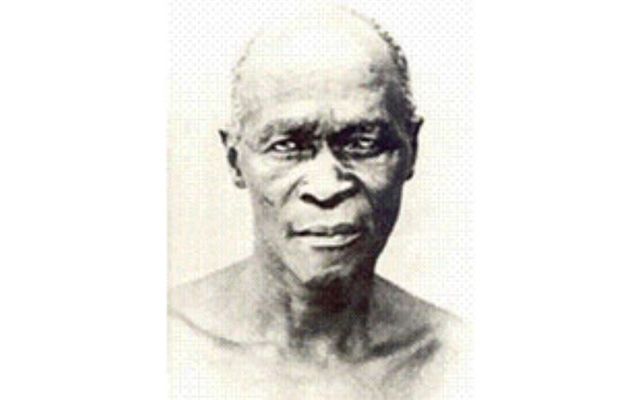Chief Maqoma's sacred warrior stick was looted and brought to Ireland 150 years ago. His ancestors are now asking that it be returned to South Africa.
Ireland's Minister for Culture, Catherine Martin, is being called on by South African officials to return the warrior stick of Chief Maqoma to his descendants the Princess royals Ncedisa Maqoma and Princess Mamtshawe Zukiswa Kona of the Xhosa nation.
This week the South African Princesses visited Dublin to view the stick which is currently stored by the National Museum of Ireland at Collins Barracks. South African scholar, poet, and playwright Nandi Jola discovered the existence of the stick in 2023.
Jola told the Irish Examiner "The stick is not an object to us. It’s not an artifact to us. It’s a family heritage. It’s a family story. It’s also a narration of their history that was never told."
Chief Maqoma, also known as Maqoma Tshetshisa Jonas Gonya, was a Xhosa military leader and chief in the 19th century in what is now South Africa. He was born in the early 19th century and played a significant role in the Xhosa Wars, a series of conflicts between the Xhosa people and European settlers, particularly the British colonizers.
Maqoma was a prominent warrior and military strategist who led the Xhosa forces in several battles against the British and other European settlers during the Cape Frontier Wars. These wars took place between the Xhosa people and the British, Boers (Dutch settlers), and other European groups over issues such as land, cattle, and cultural differences.
Chief Maqoma was eventually captured by the British in 1858. He faced charges related to his resistance against colonial forces and was sentenced to life imprisonment on Robben Island, the same island where Nelson Mandela was later incarcerated during the apartheid era. Chief Maqoma died on Robben Island in 1873.
Joli was planning an exhibition to mark the 150th anniversary of Chief Maqoma's death when she discovered the stick.
She told the Irish Examiner that she met with Princess royals Ncedisa Maqoma and Princess Mamtshawe Zukiswa Kona last summer.
She said "I was inquisitively asking who their ancestors were and told them about my research.
“They said ‘oh our ancestor was killed on Robben Island’. For me, that was like ‘ding’. I asked who their ancestor was and they said 'Maqoma'.”
She continued “Maqoma mustn’t have been long dead when they took his stick, that is a violation. Culturally, the significance of the stick is that his nation can never rise again."
The National Museum of Ireland allowed Jola to see the stick, which inspired her to write a play about it. "Mamtshawe — The Rise Of Maqoma" will debut in Collins Barracks, on Tues, Jan 16. The stick will also be displayed for the first time in 150 years.
Jola believes the Princesses would like to return the stick to South Africa.
She said “Of course, it’s their stick. It belongs to them. That’s what I want for them. This is about repatriation and restitution. I don’t want it to be downplayed as a photo opportunity for the museum to be seen as a place that champions diversity. It’s a place of colonial loot."
In 2023, Minister Catherine Martin set up an expert committee on the restitution of historically and culturally sensitive objects. A department spokesperson said each object will be approached on a "case-by-case" basis.




Comments